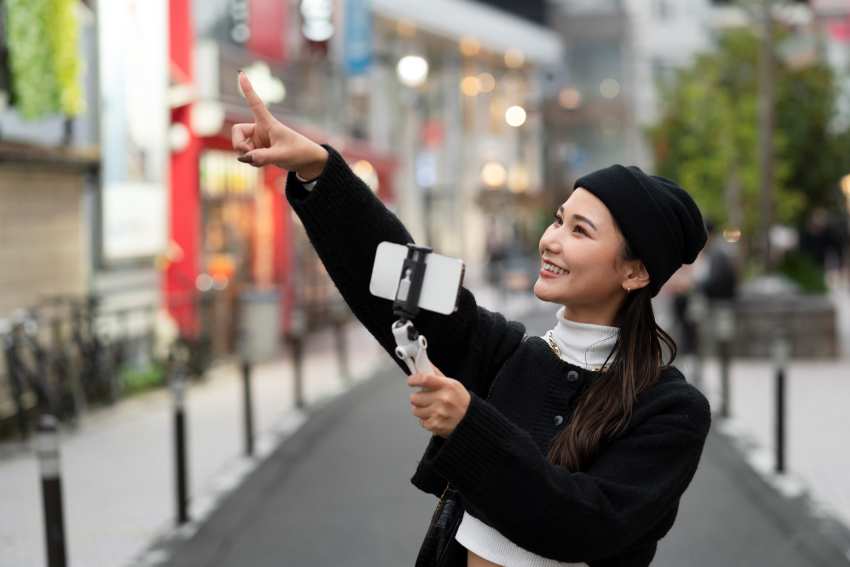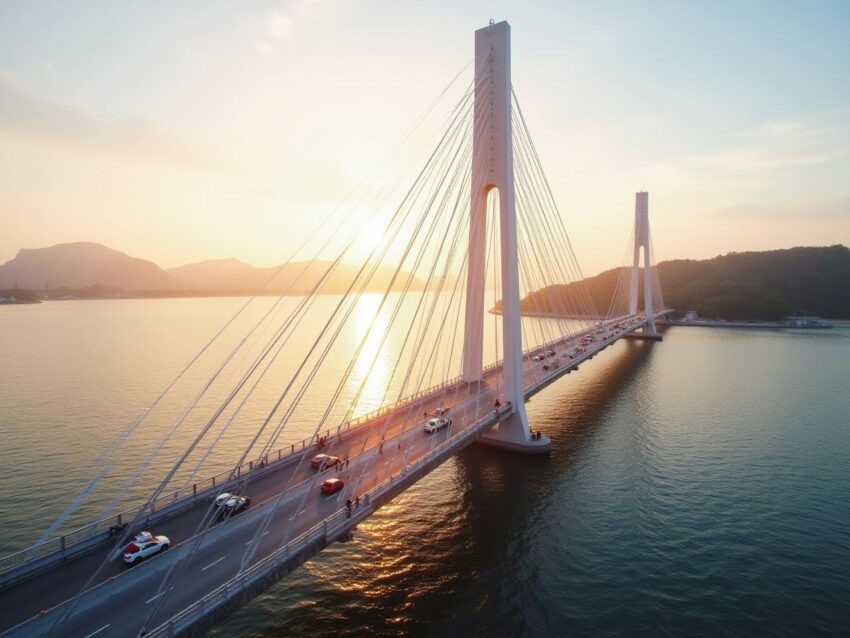
China Leads the Charge in Blogger Diplomacy for Tourism, Following U.S., France, Germany, Japan, and UK – Know More About This Latest Trend

In recent years, China changed its strategy for burnishing its global image from traditional political propaganda to a more modern approach: influencer marketing. China, meanwhile, has increasingly employed bloggers and influencers through social media to help burnish its image, particularly in places such as Central Europe. Czechia, in particular, is the main focus of this new wave of “blogger diplomacy.” Two Chinese government-paid bloggers have been active in the Czech market, trying to tilt the public sentiment in the favor of China, states a report authored by the Central European Institute of Asian Studies (CEIAS).
It is a change from the old model of relations China had with the world, especially after anger erupted worldwide regarding the COVID-19 epidemic, which shed a largely negative light on China. The rise of social media influencers at such a time has also helped China to achieve an end run around traditional news outlets and directly access young, digitally savvy audiences in countries such as Czechia. As influencer culture flourishes worldwide, China has noticed the growing power of bloggers and vloggers, and now the country is using this relatively new form of gathering soft power to bolster its global image and tourism industry, while seeking to change the conversation about certain issues at home.
“When the Chinese Environment is Everywhere” : China’s Place Images in the Swedish Press
China first tried influencer marketing in Czechia in 2013, when the China Radio International (CRI) started a news service in Czech. After the success of this campaign, the Chinese regime expanded its footprint on Czech social media, opening accounts on popular platforms, including Instagram, Twitter and Facebook. But these government-owned social media accounts were often met with scepticism given their open links to the Chinese Communist Party (CCP).
That changed in 2021, when China, in the midst of the COVID-19 pandemic, switched tactics from using traditional forms of state-driven propaganda to recruiting local influencers who spoke to the people in their own language. The pivot was particularly evident when two influencers, Lada Wang and Pepa Zhang, appeared on Czech social media for the first time. These influencers have been quick to gain a following with over 40k Instagram followers combined. Their bios on social media are almost exactly the same: Both say they live in Beijing now and would like to use the platform of Czech media to show their audiences “how interesting life is.”
This shift was timely. As the pandemic unfolded, China came under growing criticism, due in part to a perception of the country as the epicenter of the virus. Meanwhile, as social media consumption soared in the lockdowns, this also set the stage for influencers to influence opinion and access parts of the population difficult to reach via traditional media.
The Role of Influencers in the Development of Chinese Tourism
The use of state-paid influencers is not only about scripting the story of China’s image; It echoes an attempt to deploy these influencers as ambassadors to help attract tourism. Through the integration of the everyday lives and experiences of influencers such as Wang and Zhang, China has managed to effectively introduce its culture, art, food, and historical sights to Czech audiences in a low-key personal manner. This strategy also lets Chinese highlight travel destinations off the beaten tourist path that the average tourist may not know about.
China has been a leading player in global tourism for years, drawing millions of international arrivals to its cities like Beijing, Shanghai and Xi’an, and to its most famous sights including the Great Wall and the Forbidden City. But it is the less-known destinations that China is now keen to show off. Zipline’s influencer-led strategy offers a new way for China to market itself as a destination for younger generations. Influencers, who specialize in communicating real life experiences, provide would-be tourists the chance to relate to the country on a more personal level — a world away from the politicised rhetoric that is often associated with China’s global presence.
And, via influencer marketing, China wants to win back trust and change the story to be positive, cultural and human. Instead of politicising, these influencers concentrate on the beauty, history, and warm-heartedness of the Chinese people, in turn rendering the country more attractive to Czech travellers. Long term, this change could have the potential to help China boost its tourism economy as more international tourists are attracted to discover its rich cultural landscape.
BLOGGER DIPLOMACY AND HOW IT AFFECTS THE TRAVEL LANDSCAPE
China is not alone in deploying influencers to shape global public opinion and promote tourism. A number of other countries, including the United States, France, Germany, Japan, and the United Kingdom, have also come to appreciate the digital influence wielded by bloggers. Like China, these countries are using social media to fuel their tourism industry and drive positive international sentiment in a way that’s cheaper, and more effective.
United States: Long the domain of female personalities — think Carrie Bradshaw’s endorsement of Magnolia Bakery — the U.S. has leaned heavily on influencers to promote tourism both in places like California, Florida and New York, and in promoting what the country has to offer, from our natural beauty to the breadth of our cultures. The ascent of travel influencers has changed the way even aging destinations promote themselves, and it has become easier to find authentic travel experiences in every corner of the country.
France: Whether you’re checking out iconic landmarks or admiring world-class art, France has utilized influencer marketing to draw in young tourists especially in regions beyond Paris. By encouraging regional travelling, France hopes to break the concentration of visitors in the capital and relieve the strain of mass tourism in some tourist hotspots.
Germany: Germany has launched an influencer-led sustainable tourism push pausing out of its outdoor activities, historic sites and local culture. The country has poured resources into promoting lesser-known cities and natural landscapes that it wants travelers to visit in search of a more authentic, sustainable experience.
Japan: Another country that has embraced influencer marketing, Japan’s influencers regularly feature anything from a traditional tea ceremony to cutting-edge technology. But the Japanese government has also worked with influencers to try to create a tourism boom in less-touristed parts of the country, walkiing a fine line between Economic growth and cultural preservation.
United Kingdom: Britain’s tourism industry has experienced a rise in influencer promotion too, particularly from attractions tied to history, art and culture. Using digital platforms, the UK is actively marketing its wide range of product from regional tourism, outside of London.
Blogger Diplomacy and Ethical Concerns
Influencer marketing is a potential game changer for tourism, however pick your p’s and q’s because it does not come free of ethical concerns. We have questions about transparency and authenticity when one such pays bloggers (as China does), (Source) In addition, influencers being financially backed by a government may be considered to be promoting a filtered, positive representation of the country, failing to capture the negative aspects of the country’s political or social context.
It is crucial for tourists to read the content disseminated by these influencers with a critical eye, especially related to government-approved campaigns. While influencer-led marketing can offer insights into a given destination, travelers should take these opinions with a grain of salt and do their own research, as well as to consult other channels when making travel plans.
Moreover, she continued, as more and more countries — including China — turn to influencers in the service of diplomacy, there is the possibility of representing the country in a one-sided manner. For example, Influencers might dwell on a positive story of a place, while sweeping sensitive issues (human rights issues or political tensions) under the rug. This leaves visitors with a dilemma: they want to know a place, but only so much as they can before they actually go.
Conclusion: Influencers, the New Dynamics in Global Tourism
The advent of influencer marketing in global tourism is a game changer in the way that countries interact with potential visitors. As China, like the United States, France, Germany, Japan, and the UK, looks to influencers to help sway public opinion and promote tourism, it’s evident that the travel sector is changing. Amid the rise of social media as a force that shapes where we travel and how we should show ourselves off when we’re far from home, these part-promoter, part-image-keeper handlers are now key players when it comes to both getting us to discover locales and, yes, when it comes to deciding what places actually are the ones worthy of discovery.
The employment of state-paid bloggers in Czechia is just the start for China in a much broader strategy to boost its global tourism appeal and its image around the world. As other nations get on board, the future of tourism will be more and more shaped by social media personalities that promise a more personal and “realistic” way to see the world. Yet the success of such a strategy will largely depe nd on how nations adopt authenticity, transparency and ethics, to maintain influencer-driven tourism as a force for good and long-term sustainability in the global travel space.
The post China Leads the Charge in Blogger Diplomacy for Tourism, Following U.S., France, Germany, Japan, and UK – Know More About This Latest Trend appeared first on Travel And Tour World.
China Leads the Charge in Blogger Diplomacy for Tourism, Following U.S., France, Germany, Japan, and UK – Know More About This Latest Trend
| Divisions of Shy Paris Entertainment | ||||
|---|---|---|---|---|
| Shyparis Entertainment | Shy Paris Bookings | Linkz Radio | Klublinks | Shy Paris |
Shy Paris Bookings is a Division of
❤Shy Paris Entertainment ||||| International Spectacular Events, Stellar Event Planning and Management, & Celebrity Booking Agency. Please contact us as we can provide you with both international and/or local renowned full service event planning and management, & celebrity bookings at shyparisentertainment@gmail.com or
CONTACT: Email: shyparisentertainment@gmail.com
Facebook: ShyParis Youtube: @Shyparis Twitter: @Shyparisent Instagram: shyparisentertainment Whatsapp: 1-437-259-3399
✶✶✶✶✶✶✶✶✶✶✶✶✶✶✶✶✶✶✶✶✶✶✶✶✶✶✶✶✶✶✶✶✶✶✶✶✶✶✶✶✶✶✶✶✶✶✶✶✶✶
SHY PARIS ENTERTAINMENT COMPANIES
✅ ShyParisentertainment.co – https://shyparisentertainment.co
✅ Shyparisbookings.com – https://shyparisbookings.com
✅ Linkzradio.com – https://linkzradio.com
✅ Klublinks.com – https://klublinks.com
✅ Shypariswebdesign.com – https://shypariswebdesign.com
✅ ❤️ Shyparis – htttps://shyparis.com❤️





